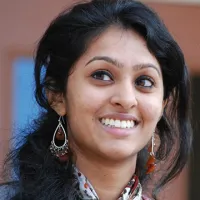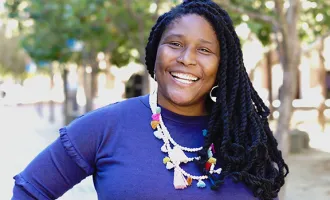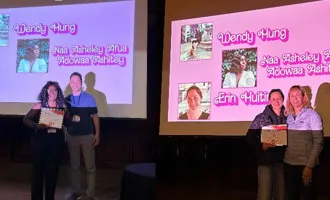Advocate Shares Her Story
In the wake of recent initiatives like the March for Science, fundraisers for planned parenthood, and the Women’s March, I’ve been encouraged by the numbers of people who share my motivation for change. I remind myself of the need to keep advocating for ideals I believe in. But it gets tiring to maintain hope and motivation through tougher times, doesn’t it?
In a “Faculty-Student Meet and Greet” event hosted by UCSF’s Women in Life Sciences group, I was inspired by Carol Gross’s perspective towards participating in efforts to safeguard ideals in our community, especially those associated with promoting diversity. In her opinion when people have persevered for change, some change has followed. It hasn’t been easy. But voices make a difference. Then, why should it be different this time?
A recipient of the NAS Selman Waksman Award in Biology and the AAAS Mentoring Award, Dr. Carol Gross is a professor at UCSF who studies transcriptional regulation and stress responses in the bacterium E.coli. Determined to discover novel cellular network interactions, her lab has started developing high throughput phenotyping approaches to further understand transcriptional processes. She has played an instrumental role in a number of initiatives to increase diversity in STEM throughout her career.
The following is a lightly edited version of my interview with Dr. Carol Gross, in which she shares her experiences through life, science and thoughts on overcoming difficulties.
What motivated your interest in science?
My grandmother had an amazing green thumb with planting plants. Growing up, I loved following her around in the garden. After I became older, I worked in the research arm of Brooklyn Botanic garden. I really wanted to make plants of different colors! I had really supportive role models along the way, including my parents, grandmother and high school biology teacher who believed in me and encouraged my scientific interests.
One incident comes to mind — when I was in my sophomore year of high school, we were given an assignment to decide what career we wanted to pursue. So I remember going to the Brooklyn public library, scrolling through roller decks of different careers and deciding that I wanted to be a biochemical geneticist, which is fairly close to what I am now!
It is amazing to have known what you wanted to do early on! What was your journey through science like after that?
My family wasn’t very wealthy. I went to study Botany at Cornell’s agricultural school, which was publicly funded. After I finished my freshman year and had taken a graduate course, my advisor told me that there’s no path forward for women in science unless you marry a scientist.
My advisor wasn’t being particularly prejudiced but was just sharing his observations. So, I decided to switch to science education which in retrospect, was really good for my career. After finishing my undergraduate degree, I went to Brooklyn college to get my masters.
During my time there, I decided that even if there were no jobs, I would get a PhD. That decision was motivated by the fact that there were two women faculty members at Brooklyn college, whereas at the time, there weren't any women faculty at Cornell.
The women faculty were hired during the second world war when there were fewer men available to teach, and no new women faculty had been hired since then. After that, I went to the University of Oregon to get my PhD at the Institute of Molecular Biology.
The landscape was very different from how it is now. You know… you just can't let things dissuade you.
Undoubtedly, pursuing your dreams in that kind of a landscape must have been very challenging. What kind of a perspective did you develop to deal with the struggles?
I didn't grow up thinking that life was fair. I am Jewish and I had seen that opportunities were different if you were Jewish. For example, admission to prestigious was limited by “geographical distribution” to limit the number of Jewish students admitted from NYC, similar to the barriers keeping Asians out today. I just grew up thinking that you just got to do the best you can, be resilient and see what happens. There are no guarantees.
How did you manage to balance your family life with work, especially since it was rare for women to pursue scientific careers back then?
[Haha] I had a baby right when I started my PhD and my advisor said, “You know Carol, I don't think you can be a good scientist and a good mom”. He was not being unsupportive but was making that statement based on his observations. And I said, “Well... I'm going to try.” When I said I was going to do it, he was fully supportive.
I felt discouraged a lot of times. But one of the advantage of having a family is that you can play off your family and laboratory life against each other to maintain an equilibrium. In my experience, even with working so hard, there's huge flexibility. When I finished my PhD, my advisor said, “Carol, you really changed my mind. You can be a good scientists and a good mom.”
Despite the challenges in my path, I feel like that there was nothing that would make me happier than being a scientist.
What do you enjoy most about your job as a scientist and mentor?
I feel so lucky to do science. It makes me very happy to discover things that weren't known before. And I enjoy mentoring students. When I started my lab my goal was not only to do great science but to have people come out of my lab who are better than me! It is so thrilling to see how students grow over the course of their PhDs — it is fantastic!
You’ve spearheaded so many diversity initiatives at UCSF. What was your experience in developing such diversity initiatives?
I started a faculty diversity committee and helped reconfigure a basic sciences summer program for students from diverse background to part-take in. Back then, I also decided to increase outreach efforts to other schools.
It was surprising because a lot of schools I reached out to in California had this perception of UCSF being inaccessible. UCSF had this ivory-tower-like feel to it. Even schools like UC Davis asked me questions like, “Are you sure you want our students?”
It didn’t end with outreach, though. We also needed to do something to make the environment more inclusive on campus. For that, we started focus groups and started collecting feedback from students. Having students involved has definitely helped in developing these efforts, but there are still long ways to go.
At times, students coming from diverse backgrounds feel like their diversity, and not merit, is what got them admission. I think that is a very challenging aspect of promoting diversity. What do you see as the challenges to promote diversity?
Yes, that is a challenging problem. Some students coming from diverse backgrounds will tell you that when they get admitted into programs or awards, other students inherently feel like, “Well, of course you got one.” That is endemic racism. It is something we really have to work on. It also is true that some of the diverse students are the strongest students that we admit and we don't admit anyone that we don't think can do well.
Many students do not go to high school where they have AP courses. Many students do not go to a college that's equivalent of MIT, so they have to play catch up. Many of these students had to work 40 hours a week while going to school and because of that, their grades weren’t as good. So what I view us doing, is taking those who have succeeded through those challenges and giving them a chance. I'm very sympathetic to that.
When I went to Cornell, I ended up taking the worst physics course, and one semester of the organic chemistry course because I couldn’t afford to pay more to take additional classes.
I wasn't equivalent to someone who had gone to an MIT or some other place so I definitely understand that there is huge inequalities in opportunities that people get. And it’s important to realize the inequities.
One of our initiatives in the diversity committee is to develop programs to sensitize faculty and students to some of these crucial issues.
What is your general advice to budding scientists especially in this political climate?
First of all, you have to really enjoy science. You have to believe in yourself and keep at it. With regards to our political climate, I really believe that this is a unique moment at UCSF in which people are really motivated to cause change.
The larger things that are happening in the world has made many of us focus on the community we’d like to build at UCSF. So, I say we seize this moment!



